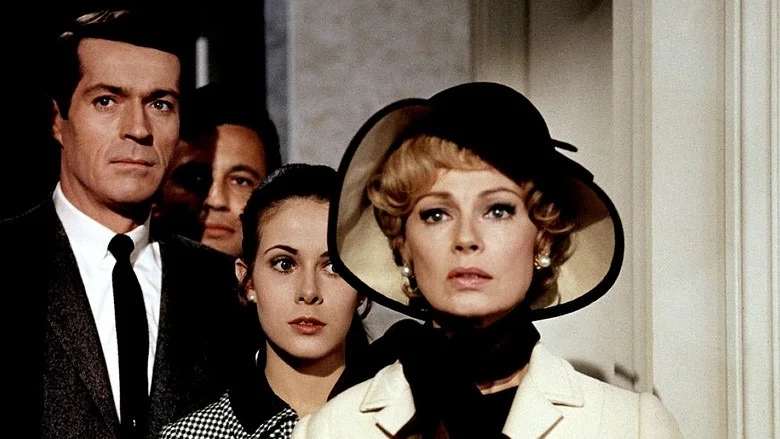Beginner’s Guide to Alfred Hitchcock: The Pleasure Garden (1925)
One figure in Hitchcock’s life I haven’t talked much is Alma Reville. She and Hitchcock met in 1919, both working at Paramount’s Famous Players Lasky, an American studio based in England. Hitchcock was a graphic designer there, and Reville was an editor. Hitchcock became an assistant director in 1923 on the Michael Balcon-produced film Woman to Woman, but Reville had lost her job. Hitchcock hired her as editor and a working relationship was born. The two fell in love, and got engaged during the making of 1925’s The Pleasure Garden, Hitchcock’s earliest surviving directorial effort.
American actress Virginia Valli was brought over by Michael Balcon to England to star in The Pleasure Garden, the first time an actor was brought overseas. Valli plays Patsy, a chorus girl at the Pleasure Garden. When Patsy sees that Jill (Carmelita Geraghty) has lost her money, she helps Jill get a job at the Pleasure Garden as well. Jill leaves her fiancé Hugh (John Stuart) for the company of rich men as she becomes more famous. Jill also rebukes Patsy and takes up with Prince Ivan (Karl Falkenberg). Hugh then goes to Africa for work, and Patsy falls for his friend Levet (Miles Mander). How these romantic entanglements resolve themselves form the crux of the film.
The Hitchcock we know and love is present only in some scenes, like the opening featuring women running down a spiral staircase and a shot of a man looking through opera glasses. But it is interesting that this is the film where Hitchcock and Reville became engaged. Alma Reville was of course Hitchcock’s most trusted collaborator throughout his career. Reville had writing credits on many of Hitchcock’s films from the 1920s through 1950. Even after that, she was the most important person on set, after Hitchcock himself. Reville had a sharp eye for details and for cinematic artistry.
The Pleasure Garden is a romantic-comedy, but it’s one that also features a murder. And the victim appears to the killer as a ghost, and it’s one of the only films where Hitchcock includes a supernatural element. That could be even explained away with the ghost being a manifestation of the killer’s guilty conscience. The mystery element of the film doesn’t quite turn the film into a classic Hitchcock suspense film, but it’s a fun twist to the standard romantic silent film.
Before The Pleasure Garden, Hitchcock worked on the titles for silent films. He was a first-time director on a movie called Number Thirteen, but that was shelved because the studio, Gainsborough Pictures, lost financing on that film. Whatever footage he shot is lost. After that, he did a short movie called Always Tell Your Wife, but that is partially lost as well. That’s when Hitchcock became an assistant director to Graham Curtis, who directed Woman to Woman among other films.
It was in this period that Hitchcock observed F.W. Murnau make The Last Laugh, a director that would have a major influence on Hitchcock. After The Pleasure Garden, Michael Balcon hired Hitchcock to make The Mountain Eagle, a melodrama set in Kentucky. The making was a disaster, and the studio refused to release it until after Hitchcock’s next film The Lodger: A Story of the London Fog was a hit. The Mountain Eagle is lost, much to Hitchcock’s delight because he hated it. Only stills from the film exist.
The Pleasure Garden is charming, and it was well received at the time. This period of Hitchcock’s life is fascinating to me. I like seeing his influences take shape, and the beginning of his career. How could anyone have known that this title designer turned assistant director turned filmmaker would go on to such a storied career? And that the woman he fell in love with in this time would turn out to be MVP of that career?












